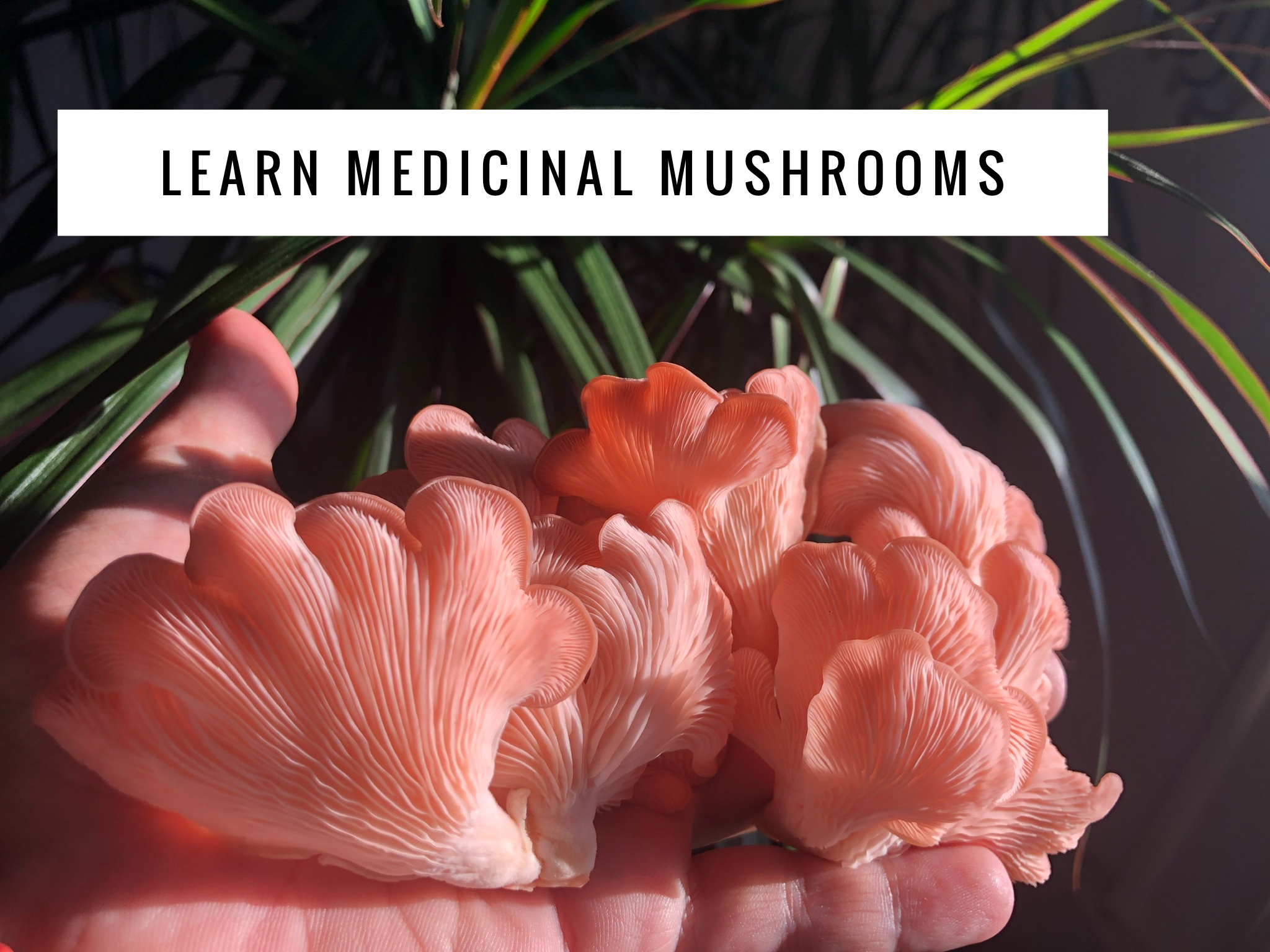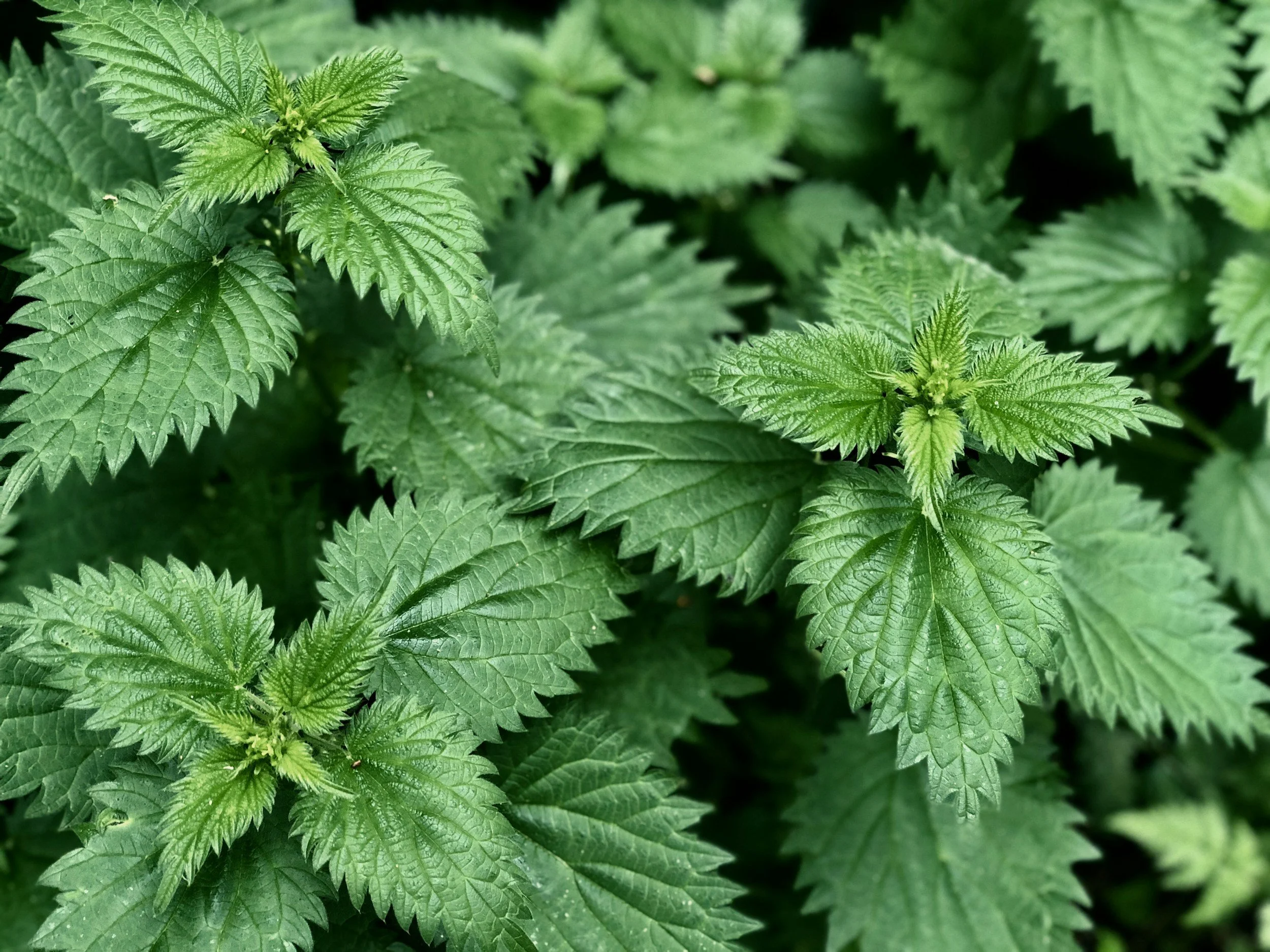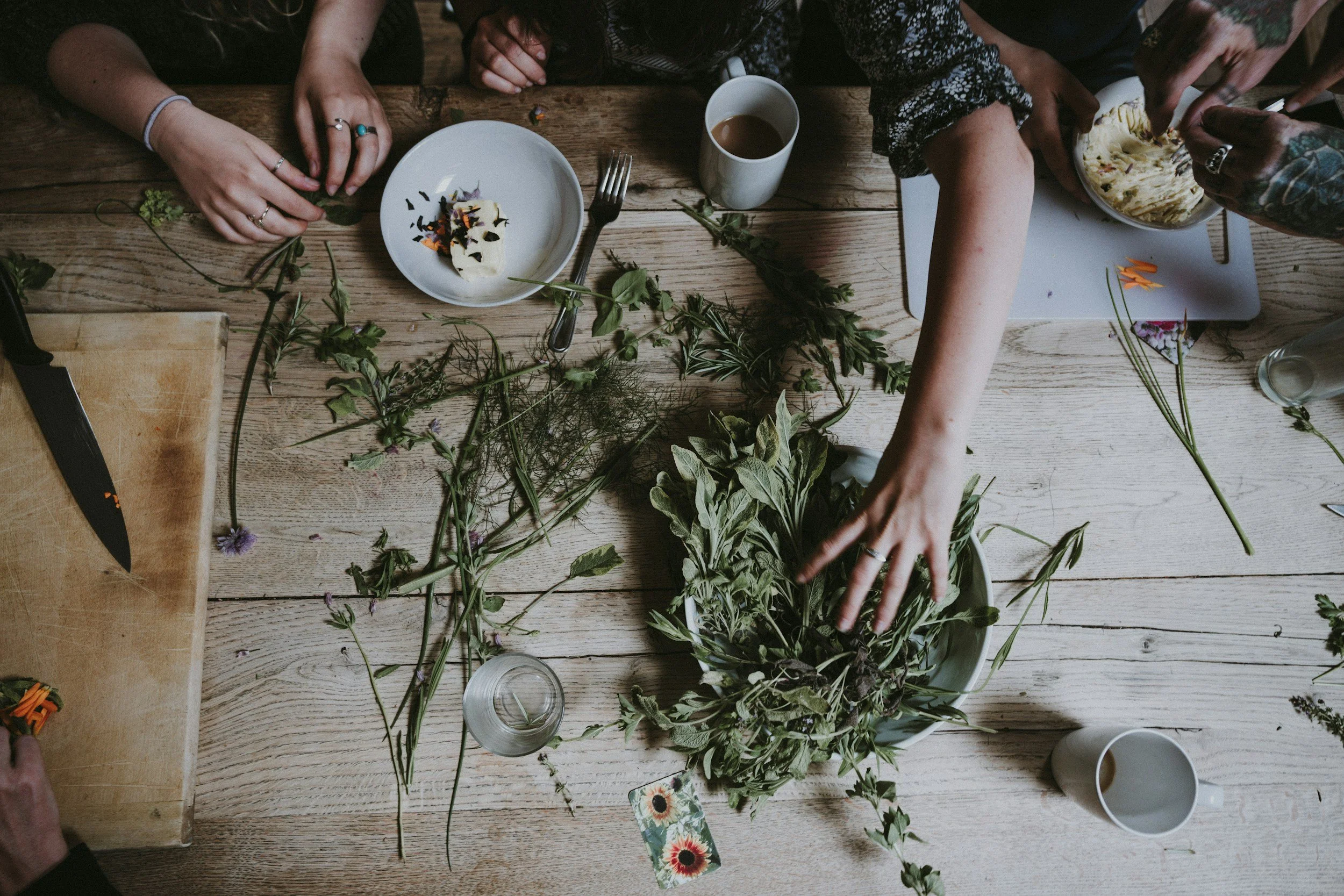
Flora & Fungi Clinical Herbal Apprenticeship
An apprenticeship in the art of holistic healing, herbalism, and fungi wisdom
Program Overview
The Flora & Fungi Clinical Herbal Apprenticeship is not just about studying plants and mushrooms — it’s about recognizing the patterns of ecosystems, both in the natural world and within the terrain of the human body.
This apprenticeship blends herbalism and mushroom knowledge with naturopathic and nutritional foundations, vitalistic paradigms, and relationship-centered practice to create a holistic, professional training program.
Through lectures, apothecary work, case discussions, guided assignments, and (for some tracks) direct patient shadowing, apprentices gain the confidence to partner with plants and fungi in safe and meaningful ways — not just for themselves, but for their families, their communities, and those they may one day support.

Three Tracks, One Apprenticeship
All students share the same core curriculum. The path you choose depends on your background and your goals:
Track A: Clinical Apprenticeship Pathway
For those with prior medical or herbal training (nurses, nutritionists, massage therapists, advanced herbalists).
6-month modules (3 tiers, 18 months total)
16+ hours/month of live lectures and guided self-study
Homework assignments with grading and personalized feedback
Patient shadowing and apothecary immersion
Case discussions and monthly tests
Certificate of Completion with AHG-aligned hours and requirements.
-
$2820 per tier, approx. $470 month.
Pay-in-full discount available for $2700.
or $8000 all three.
Track B: Holistic Health Coaching Pathway
For those without a medical background (coaches, yoga teachers, wellness practitioners, beginners).
Everything in Track A, plus additional medical foundations to build confidence and safety
Extra support with terminology, labs, and anatomy/physiology
Same level of mentorship, shadowing, and clinical immersion
Note: Students in Track A who struggle with safety assignments may be asked to complete Track B requirements before progressing.
-
$3,000 per tier, $500 / month.
Pay-in-full discount available, $2900 per tier
or $8500 all three.
Track C: Self-Study Pathway
For independent learners who want flexibility and affordability.
Pre-recorded lectures and full access to curriculum materials
Reading lists, materia medica, and homework assignments for self-study (not graded)
No shadowing, case discussions, or direct mentorship
Optional online community or group Q&A calls (if available)
Certificate of Completion for educational hours only (not AHG clinical-ready)
Option to upgrade to Track A or B later by paying the difference.
-
Complete all three tiers for about $4,400.
Why Choose This Apprenticeship?
Mushroom Medicine Expertise — With Dr. Chimileski’s deep knowledge and teaching experience in fungi, mushrooms are a central part of the curriculum. From reishi and lion’s mane to foraging wild species in the forest, you’ll learn how to partner with fungi across folklore, research, and practice.
Clinical from the Start — Every mentorship track includes case-based learning and shadowing. Unlike most programs, clinical skills are woven in from day one.
Naturopathic & Nutritional Foundations — Learn how and why to support the whole person through food, herbs, fungi, and lifestyle. Gain clarity on the difference between vital practices and “green allopathy.”
Mentorship with Dr. Lindsay Chimileski — Naturopathic doctor, acupuncture specialist, registered herbalist, forager, and educator with over a decade of clinical and teaching experience.
Higher Level Learning
This curriculum is modeled after the Botanical Medicine and Nutrition courses Dr. Chimileski taught at the University of Bridgeport College of Naturopathic Medicine. In addition to teaching courses to the naturopathic medical students, she also ran clinic shifts out of her practice. This mentorship brings the same depth and structure of academic herbal and nutritional education into an apprenticeship setting — with the added benefit of mentorship, shadowing, and case-based learning.
Botanical Formulating, Philosophy & Dosing Details
EENT & Immune Basics
Respiratory Health
Circulatory Health
Gastrointestinal Foundations
Headaches & Nervous System Patterns
Temperature Regulation
Herbs for Oral Health
Herbs for Skin Health
Women’s Health & Advanced Women’s Health
Mind & Nervous System: Nervines, Sedatives, Hallucinogens, Nootropics, Stimulants
Adaptogens, Adrenal Tonics & Thyroid Herbs
Ethnobotany Highlight: Jamaica
Men’s Health
Modules Covered
The apprenticeship explores system-based learning and specialty topics across plants, fungi, nutrition, and vitalist traditions. Modules include:
Kidney & Bladder Health
Children’s Health
Musculoskeletal Health
Botanical Plant Identification, Plant Families & Toxicity Concerns
Trauma, Injury & TCM Highlights
Pain Management
Immune Modulation, Immune Enhancement, Hyperimmunity & Biological Response Modifiers
Medicinal Mushrooms
Foraging Practices
Toxicity & Safety in Herbalism
Extraction Methods
Cognitive Support & Healthy Aging
Tier Length: Each tier runs for 6 months. Completing all three tiers (18 months total) provides the documented hours needed to be eligible to apply for Registered Herbalist (RH) status with the American Herbalists Guild (AHG).
Flexibility: You may take time between tiers; continuous enrollment is not required.
Format: Approximately 16 hours per month of lectures, plus guided self-study, homework/compendium, and monthly tests (except in Self-Study Track).
Mentorship: Shadowing, apothecary immersion, case discussions, and personalized feedback are included in Tracks A and B.
Certification: Certificate of Completion for each tier, documenting educational and training hours (AHG-aligned for Tracks A & B).
Structure & Commitment
Students may choose to deepen their learning through immersive experiences:
Mushroom Medicine Intensive:
A focused training on medicinal fungi, including advanced materia medica, foraging, safety, extraction methods, and applications.
EcoTours for Cures – Jamaica Immersion":
Join Dr. Chimileski with Dr. Zampieron, alongside local guides and bush doctors, for a guided herbal and cultural immersion in Jamaica. Explore ethnobotanical traditions, local plant medicines, and nature-based healing practices in a vibrant ecological setting. This experience offers cross-cultural perspectives and hands-on learning that bring herbalism to life in community and in place.
Optional Add-On Tiers
Applicants are encouraged to submit the following with their application:
Curriculum Vitae (CV) or résumé outlining education and experience
Verifying documents (transcripts, certificates, licenses, diplomas if available)
Letter of Intent — a short personal statement sharing why you wish to join the apprenticeship and what you hope to gain
Three of Your Favorite Herb Fun Facts — a lighthearted way for us to learn about your plant/fungi connection
Plant Origin Story — share a memory from childhood or later in life where an herb or mushroom played a central role. This could be something growing in your backyard when you were young, an herb in a food or holiday tradition, something you remember at a loved one’s home or that a loved one introduced you to, a taste or scent that made a lasting impression, or even something playful — like a plant you threw at your sibling (or they threw at you). You get the idea.
Application Materials

Next Steps
Apply online and select your preferred track.
Submit your application materials.
Interview with Dr. Chimileski to confirm placement.
Begin your journey into herbalism, fungi wisdom, and the art of holistic healing.


